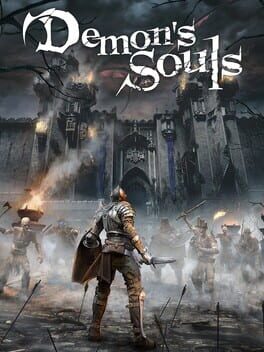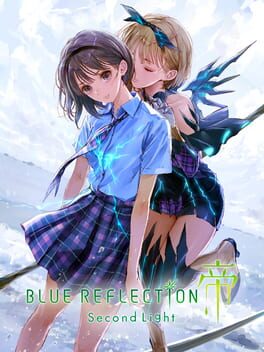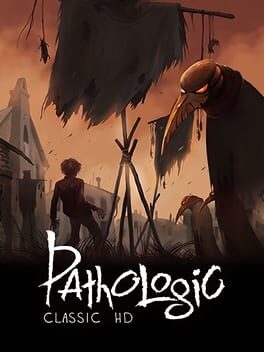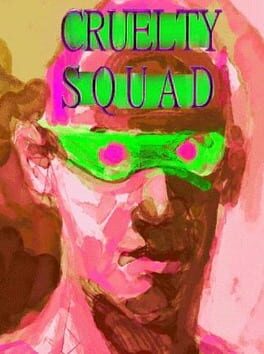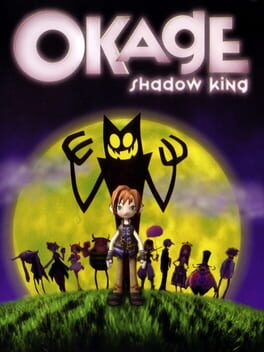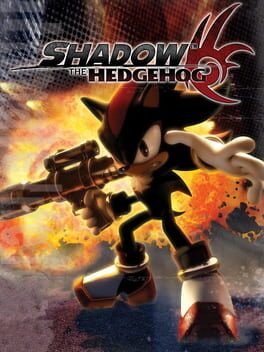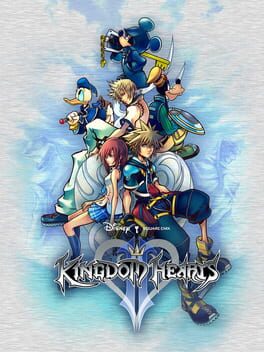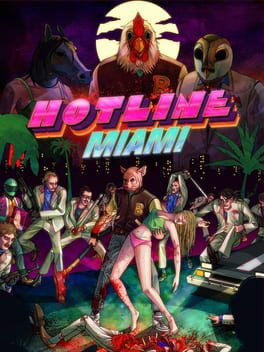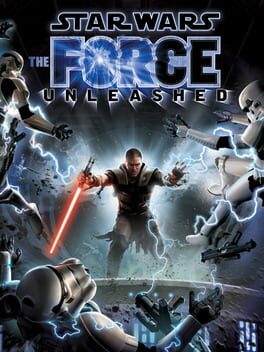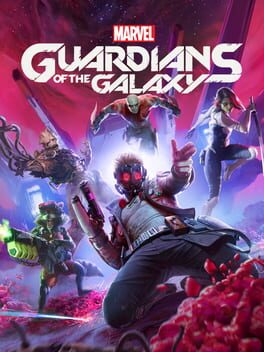saihara
212 Reviews liked by saihara
Demon's Souls
2020
cannot say i am particularly enamored with the idea that we should frame this discussion in any way that pretends it is not ultimately a willful net loss for games preservation. the idea that in order to aggressively push hardware a development team was enlisted to resurrect a long forsaken ip, in the process fundamentally misunderstanding the majority of its artistic sensibilities (sometimes aggressively so) to showcase a console’s power rubs me the wrong way for several reasons. and there’s potent irony here because we must also remember that in essence sony is banking on from softwares death cult to launch a console cycle for the second time in a row now. recall the invective words of shuhei yoshida, 2009: 'This is crap. This is an unbelievably bad game.' surely what is now a valuable ace in the sleeve for sonys financial strategy in the 9th generation of consoles onwards deserves more respect than this?
as an immediate contrast in the field of remakes, i’ll put forward that at the very least, ff7 is one of the most ubiquitous games of all time - to such a degree that altering its content and expanding on its themes in a rebuild-esque scenario is not only sensible, but appreciated. the same case is difficult to make for demon’s in my opinion.
perhaps bluepoints alterations, seldom rooted in any reverence for aesthetics but instead prioritizing largely perfunctory gameplay, are to your tastes. but they are not to mine. the original demon’s souls is an intensely difficult work to assess, litigate, and reconcile with, to be sure, but whatever your stance on it, it’s difficult to deny how exquisitely it worked with its limitations to fashion something that was entirely inspired and bold, yet quintessentially from software. none of that same evocative ethos is reflected here, and for these reasons i find bluepoint’s iteration extremely difficult to respect - doubly so because im in a position now of having twice been told to give bluepoint a chance on a remake, both times to personally and deeply unsatisfactory results. i only wish more folks had a convenient way of experiencing the original so they were free to pass their own judgments
as an immediate contrast in the field of remakes, i’ll put forward that at the very least, ff7 is one of the most ubiquitous games of all time - to such a degree that altering its content and expanding on its themes in a rebuild-esque scenario is not only sensible, but appreciated. the same case is difficult to make for demon’s in my opinion.
perhaps bluepoints alterations, seldom rooted in any reverence for aesthetics but instead prioritizing largely perfunctory gameplay, are to your tastes. but they are not to mine. the original demon’s souls is an intensely difficult work to assess, litigate, and reconcile with, to be sure, but whatever your stance on it, it’s difficult to deny how exquisitely it worked with its limitations to fashion something that was entirely inspired and bold, yet quintessentially from software. none of that same evocative ethos is reflected here, and for these reasons i find bluepoint’s iteration extremely difficult to respect - doubly so because im in a position now of having twice been told to give bluepoint a chance on a remake, both times to personally and deeply unsatisfactory results. i only wish more folks had a convenient way of experiencing the original so they were free to pass their own judgments
this is gust's best game since atelier shallie/the atelier dusk trilogy in general and that completely took me by surprise. the original blue reflection is what i would call a (perhaps more than) slightly perverted edm album with boss fights - hayato asano, who returns to score second light, provided an absolute rave of a backdrop to the few spectacular battles but everything else about the game had this uncomfortable sense of voyeurism barely holding together an rpg with many pointless systems and no budget to make sense of any of it. based on my experience with another of gust's sequels - nights of azure 2 - and the general trend in the kind of audiences they have been more obviously courting (stares despairingly at atelier ryza which i have not played yet due to oozing reddit aura) since about 2017 or so i had no hopes for this game and had written it off. a day before its release i had an epiphany that if i dont buy a physical copy now i would never be able to. so i did.
not only does it tone down the leery undercurrents of the original game, limiting more """fanservice""" (god i hate this term) elements to the DLC costumes that i'll happily look away from if it keeps the actual game not-cringe, it produces a kind of jrpg that simply doesnt exist anymore - one where characters have relationships with other characters who arent the protagonist! this is partially due to it having its own original cast, the cast of the 2017 game, the BR Ray anime and the BR Sun (as of yet unreleased) mobile game all present but they are all so well integrated into the narrative - a genuinely well written science fantasy mystery underpinned by the usual jrpg themes of friendship, love, self-actualisation - that it never feels like the annoying crossover episode it should feel like.
the most genuine pleasant surprise of all? a lesbian romance that is celebrated and proves central to the narrative, not fetishised even to the extent that it is in the original nights of azure - which i still commend for staying true to itself and acknowledging itself as a gay romance unlike the obnoxiously fetishising and pandering nonsense of nights of azure 2.
the battle system is fantastic, so in love with "ether per second" as a statistic that exists - extremely fun to say. but like most gust games the difficulty just isnt there to warrant engaging with the systems too much on the normal difficulty and you only unlock hard after your first playthrough. there is a bonus ending to achieve on new game plus so there is incentive there so i may return at some point. the auxiliary systems that exist - the social mechanics, the school building aspect all serve their functions but it isnt anything unseen before.
if you have ever been a fan of gust's output you will absolutely love this. its their best work in close to a decade and im glad its free from the worst elements i was saddened to see them approach on the whole. but fuck mel kishida for doing NFTs
not only does it tone down the leery undercurrents of the original game, limiting more """fanservice""" (god i hate this term) elements to the DLC costumes that i'll happily look away from if it keeps the actual game not-cringe, it produces a kind of jrpg that simply doesnt exist anymore - one where characters have relationships with other characters who arent the protagonist! this is partially due to it having its own original cast, the cast of the 2017 game, the BR Ray anime and the BR Sun (as of yet unreleased) mobile game all present but they are all so well integrated into the narrative - a genuinely well written science fantasy mystery underpinned by the usual jrpg themes of friendship, love, self-actualisation - that it never feels like the annoying crossover episode it should feel like.
the most genuine pleasant surprise of all? a lesbian romance that is celebrated and proves central to the narrative, not fetishised even to the extent that it is in the original nights of azure - which i still commend for staying true to itself and acknowledging itself as a gay romance unlike the obnoxiously fetishising and pandering nonsense of nights of azure 2.
the battle system is fantastic, so in love with "ether per second" as a statistic that exists - extremely fun to say. but like most gust games the difficulty just isnt there to warrant engaging with the systems too much on the normal difficulty and you only unlock hard after your first playthrough. there is a bonus ending to achieve on new game plus so there is incentive there so i may return at some point. the auxiliary systems that exist - the social mechanics, the school building aspect all serve their functions but it isnt anything unseen before.
if you have ever been a fan of gust's output you will absolutely love this. its their best work in close to a decade and im glad its free from the worst elements i was saddened to see them approach on the whole. but fuck mel kishida for doing NFTs
After finishing this game with each of the protagonists, I can say confidently that I really did just find more and more to appreciate on each playthrough. I know it's been said to death, but this game is something special, even if it's a complete slog to get through sometimes. If you have way too much time on your hands and have a high level of tolerance for jank, I think the game is worth playing.
It's true that the vast majority of this game is walking from place to place, but I think what's often glossed over is just how many things you have to manage while doing that walking; having to plan out the ideal route through town to get from place to place most efficiently, weighing the risks of walking through an infected district to get somewhere quicker or taking the long route to avoid danger, checking what roads are safe to go down using the plaguefinder, and doing all this while soaking up the thick-as-fuck texture of this town, which is, I think, genuinely interesting to exist in. It's true that it's mostly varying shades of brown, yellow and green, but it never got boring to look at; infected districts are always sickening and genuinely uncomfortable to be in, burned districts feel less immediately alien while still immediately presenting themselves as dangerous, and safe areas are, in their own way, haunting beautiful, made even more so later on in the game where they become small, precious pockets of breatheability surrounded by disease and danger. The way the visual danger of hazardous areas is accompanied by notably more sickly versions of those areas themes does a lot to make the world easier to get lost in, and I will fucking fight the guy in the comments section for the YouTube upload of Utroba Night who said that this game's soundtrack "is nothing compared to Akira Yamaoka's work on the Silent Hill games" after someone (kind of bizarrely?) invited that comparison. How fucking dare you even suggest that Most Main and Stone Yard aren't god-tier mood-setters.
I also implore you to not make the mistake I made on my initial playthrough of loading a save after getting infected. This game is at its most engaging when it's a desperate balancing act, and having to find or make antibiotics to keep the sickness at bay another night made my second play-through all the more interesting. I will be the first to admit that I initially played this game in Coward Mode but speaking as someone who has renounced my ways: catch the plague if you can't avoid it! When in Rome/The Town On Gorkhon do as the locals do ya know (slowly and agonizingly rotting from the inside out)
If you've heard someone say that this game isn't worth playing for yourself and that you'd be better off just not bothering and looking up a summary, I implore you to at least give it a try if it goes on sale for cheap. Maybe you won't like it, and that's fine, it's understandable. But I think you owe it to yourself to at least try it out.
It's true that the vast majority of this game is walking from place to place, but I think what's often glossed over is just how many things you have to manage while doing that walking; having to plan out the ideal route through town to get from place to place most efficiently, weighing the risks of walking through an infected district to get somewhere quicker or taking the long route to avoid danger, checking what roads are safe to go down using the plaguefinder, and doing all this while soaking up the thick-as-fuck texture of this town, which is, I think, genuinely interesting to exist in. It's true that it's mostly varying shades of brown, yellow and green, but it never got boring to look at; infected districts are always sickening and genuinely uncomfortable to be in, burned districts feel less immediately alien while still immediately presenting themselves as dangerous, and safe areas are, in their own way, haunting beautiful, made even more so later on in the game where they become small, precious pockets of breatheability surrounded by disease and danger. The way the visual danger of hazardous areas is accompanied by notably more sickly versions of those areas themes does a lot to make the world easier to get lost in, and I will fucking fight the guy in the comments section for the YouTube upload of Utroba Night who said that this game's soundtrack "is nothing compared to Akira Yamaoka's work on the Silent Hill games" after someone (kind of bizarrely?) invited that comparison. How fucking dare you even suggest that Most Main and Stone Yard aren't god-tier mood-setters.
I also implore you to not make the mistake I made on my initial playthrough of loading a save after getting infected. This game is at its most engaging when it's a desperate balancing act, and having to find or make antibiotics to keep the sickness at bay another night made my second play-through all the more interesting. I will be the first to admit that I initially played this game in Coward Mode but speaking as someone who has renounced my ways: catch the plague if you can't avoid it! When in Rome/The Town On Gorkhon do as the locals do ya know (slowly and agonizingly rotting from the inside out)
If you've heard someone say that this game isn't worth playing for yourself and that you'd be better off just not bothering and looking up a summary, I implore you to at least give it a try if it goes on sale for cheap. Maybe you won't like it, and that's fine, it's understandable. But I think you owe it to yourself to at least try it out.
Cruelty Squad
2021
Okage: Shadow King
2001
Undertale who???
A classic fantasy rpg with Tim Burton aesthetics, quirky writing, and just a generally fun vibe. The story of a young generic protagonist boy getting sold off in a deal with the devil cause his parents will do anything to make sure their daughter won't become a comic relief character. Thus, you and Evil King Stan are thrust off onto an adventure to get rid of any imitators to the throne of evil so that Stan can take that evil power for himself.
There's a LOT to talk about with the story, but its important to address the gameplay. Iiiiits not great! Aggressive encounter rates from tedious enemies. The real issue with this is that the xp gained from enemies constantly shrinks the higher your level is and you'll be returning to this maps with the same small fry enemies pretty frequently. The dungeons are REALLY confusing and hard to navigate, forcing you to make a lot of return trips to the top level of a dungeon to heal up and replan your attack. Its often very frustrating and results in beating your head against the wall a lot. There's also often unclear story triggers and information on how to progress. Completely unplayable without a guide in many ways.
Despite that, I found it really addicting. Basically didn't put it down for the whole week, lots of sleepless nights as I finished schoolwork as quickly as possible to get back to it. Apparently the difficulty curve gets pretty bad, but I spent so much time running around in this world I was really high level by the end of the game. I had suspected that I was done with rpgs earlier this year, but with this and Fate/Extra I've learned that a solid story pace makes it really easy for me to commit to a long rpg in a much shorter time frame than six months. An exciting gem and worth a look! Stop here if that's all you need!
------------Mid-game spoilers from here on out------------
The core plot twist of Okage is so incredibly good. Its doing these big deconstruction ideas about video game world back in 2001 and its doing them really well.
The game initially lets you think some of its early gimmicks are jokes. There's brief mentions of a Classification System, which seems to determine who's a Evil King and who's a Great Hero. It comes off as just a new version of Heros' Guild or Villains' Guild and you brush it off. But the parents concern that their daughter could be a "comic relief character" instead of a "noble princess" is very real. The classification system controls your fate, your personality, how you THINK. The entire world has been created so that an old weird father can play games with his daughter for eternity, in endless battles of good and evil for her entertainment. The characters can barely grapple or understand the truth because its too existentially horrifying to process. They have to rationalize it as "the protagonist boy will help us destroy the system so that we can win... something" because that's the only way to cope with being NPCs. And the protagonist doesn't come off lightly either: your generic heroic mime hero is so unmemorable, so easily projected onto, that he vanishes from everyone's existence for an entire chapter. You'll left wandering through someone else's playground, characters reciting generic NPC town lines for someone else's story. You don't even get random battles anymore. You just wander this barren landscape, unable to impact anything in this fantasy world. Only by giving your protagonist a more firm personality can he manifest in the world again and create actual change in the world. It just... works! Its really high concept and totally delightful. A feast of gaming ideas. What a good ass time.
A classic fantasy rpg with Tim Burton aesthetics, quirky writing, and just a generally fun vibe. The story of a young generic protagonist boy getting sold off in a deal with the devil cause his parents will do anything to make sure their daughter won't become a comic relief character. Thus, you and Evil King Stan are thrust off onto an adventure to get rid of any imitators to the throne of evil so that Stan can take that evil power for himself.
There's a LOT to talk about with the story, but its important to address the gameplay. Iiiiits not great! Aggressive encounter rates from tedious enemies. The real issue with this is that the xp gained from enemies constantly shrinks the higher your level is and you'll be returning to this maps with the same small fry enemies pretty frequently. The dungeons are REALLY confusing and hard to navigate, forcing you to make a lot of return trips to the top level of a dungeon to heal up and replan your attack. Its often very frustrating and results in beating your head against the wall a lot. There's also often unclear story triggers and information on how to progress. Completely unplayable without a guide in many ways.
Despite that, I found it really addicting. Basically didn't put it down for the whole week, lots of sleepless nights as I finished schoolwork as quickly as possible to get back to it. Apparently the difficulty curve gets pretty bad, but I spent so much time running around in this world I was really high level by the end of the game. I had suspected that I was done with rpgs earlier this year, but with this and Fate/Extra I've learned that a solid story pace makes it really easy for me to commit to a long rpg in a much shorter time frame than six months. An exciting gem and worth a look! Stop here if that's all you need!
------------Mid-game spoilers from here on out------------
The core plot twist of Okage is so incredibly good. Its doing these big deconstruction ideas about video game world back in 2001 and its doing them really well.
The game initially lets you think some of its early gimmicks are jokes. There's brief mentions of a Classification System, which seems to determine who's a Evil King and who's a Great Hero. It comes off as just a new version of Heros' Guild or Villains' Guild and you brush it off. But the parents concern that their daughter could be a "comic relief character" instead of a "noble princess" is very real. The classification system controls your fate, your personality, how you THINK. The entire world has been created so that an old weird father can play games with his daughter for eternity, in endless battles of good and evil for her entertainment. The characters can barely grapple or understand the truth because its too existentially horrifying to process. They have to rationalize it as "the protagonist boy will help us destroy the system so that we can win... something" because that's the only way to cope with being NPCs. And the protagonist doesn't come off lightly either: your generic heroic mime hero is so unmemorable, so easily projected onto, that he vanishes from everyone's existence for an entire chapter. You'll left wandering through someone else's playground, characters reciting generic NPC town lines for someone else's story. You don't even get random battles anymore. You just wander this barren landscape, unable to impact anything in this fantasy world. Only by giving your protagonist a more firm personality can he manifest in the world again and create actual change in the world. It just... works! Its really high concept and totally delightful. A feast of gaming ideas. What a good ass time.
Shadow the Hedgehog
2005
Kingdom Hearts II
2005
Wow. Just wow. What an incredible game.
Kingdom Hearts II was my main reason for getting into the series. I had heard so many good things about it from friends, and the series had peaked my interest. I have never been more happier to accept a suggestion from friends.
Kingdom Hearts II is such a huge improvement from the past 2 games in the series, KH1 and CoM. The combat system is honestly one of the best I’ve ever used and feels so much more satisfying compared to the 2 games before 2. The story is absolutely incredible. While the 1st episodes of each world mostly focuses on Disney content, it still manages to feel like an absolute blast. But once you get to the second Hollow Bastion visit, everything becomes so much more huge through Organization XIII. I won’t say too much more about the story, but it was absolutely incredible and by far my most favorite gaming experience ever.
My new most favorite game of all time.
(also the ending made me cry lol)
I really wish i could rate this more than 5 stars, because it deserves it.
Kingdom Hearts II was my main reason for getting into the series. I had heard so many good things about it from friends, and the series had peaked my interest. I have never been more happier to accept a suggestion from friends.
Kingdom Hearts II is such a huge improvement from the past 2 games in the series, KH1 and CoM. The combat system is honestly one of the best I’ve ever used and feels so much more satisfying compared to the 2 games before 2. The story is absolutely incredible. While the 1st episodes of each world mostly focuses on Disney content, it still manages to feel like an absolute blast. But once you get to the second Hollow Bastion visit, everything becomes so much more huge through Organization XIII. I won’t say too much more about the story, but it was absolutely incredible and by far my most favorite gaming experience ever.
My new most favorite game of all time.
(also the ending made me cry lol)
I really wish i could rate this more than 5 stars, because it deserves it.
today marks the 20th anniversary of metal gear solid 2's release, and hideo kojima tweeted a bit in memory of developing the game so long ago. one tweet in particular stuck out to me though:
"LIBERTY and FREEDOM have different meanings, and MGS2 is not about singularity, but about the 'norms' of society having a will of their own."
the year before the release of mgs2, the norms that maintain the social fabric of the United States briefly reared their head to the public. the 2000 presidential election resulted in a contested florida count; a week-long war where the soldiers were lawyers and county election officials. the supreme court eventually stepped in and settled the matter out of the hands of the voters who supposedly drove the process in the first place, and the culture managed to digest this aberration of electoral procedure cleanly. when a much sillier repeat of this strategy took place 20 years later, there was little discourse about its relation to a time when a party actually did manage to steal an election openly with no consequence.
the point of the above is not to bemoan the "unfairness" of the situation (the choice did not really matter to the american people) but to observe how the american ideological ship rights itself even when it openly contradicts itself. much of our "freedom" yields from america's supposedly democratic structure allowing citizens to exert themselves politically, even as voting is shown to be vapid ritual and direct action is suppressed at every opportunity. yet even when these truths are so plainly evident, the shadow of american capital obscures or supplants the truth as necessary to keep the citizenry proud of the "liberty" they hold. kojima rationalizes this the work of artificial intelligence; a neural network kept fat off of the endless drip of online content, and trained to filter information for the benefit for international capitalist hegemony. the economic engine of the west's security far exceeds the abilities of any group of humans to protect, and must be handled by some sort of higher power; an omniscient american consciousness whether as a group of AIs inside an underwater fortress or a commmon understanding woven into us by the superstructure we exist in.
of course, I don't want to imply that all of the above came directly out of kojima's mind onto the page, especially since I find praises of games such as these to be inherently "anti-capitalist" to be cope in a lot of ways; the text simply does not have any coherent critique of capitalism itself. kojima has stated (paraphrased by tim rogers) that the plot here is "merely a jumble of things inspired by current events," and not a "postmodern literary statement." the thematic undercurrent of this game sometimes struggles to poke its head through all of the mess of plot elements at play: otacon cuckolding his father, the peter stillman false injury subplot, rose's desperate attempts to crack raiden's hardened exterior, the vampire who is lovers with a marine commander and then moves on his daughter who may or may not be able to deflect bullets, and revolver ocelot having liquid snake's personality inside his arm for some reason. what's unquestionable though is that kojima has a keen mind for rooting out legitimately disturbing facets of US hegemony and exposing them within his work both narratively and through the game mechanics.
much of this relies on raiden, or jack, the hapless operator commanded to infilitrate the big shell and rescue the president. his mission: to play in a role in a cataclysmic test that will prove that the patriots (the aforementioned norms, the ideological backbone of america) can organically influence the actions of people via tight control of the information given to them. part of this game's infamous obtuseness revolves around the fact that not only has raiden been misled by his supervisors, but the people he interacts with friend or foe also are acting on false information different than what raiden has. there are instances where raiden will parrot off the plot up to a given point and will be met with incredulous looks by whoever he's talking to that never remotely get resolved, and piecing together the real plot from this can be difficult. his main enemy: solidus snake, a man who has upheld the status quo of america both abroad in brutal secret military actions in africa as well as domestically as president of the united states. this is a man who has seen the superstructure and seeks to gain true liberty in transcending it; he's a man who has seen the true face of God and must be killed. even as raiden struggles to sort through his thoughts regarding all of this, he's pushed to duel solidus to the death to fulfill the patriots orders, and he has no choice in the matter. the patriots have organized the game for him and he (as the player's proxy) must participate. raiden has no alternate options, as his future is bound to the player's performance within the scope of the game, and he cannot disobey his direct inputs.
perhaps the best illustration of raiden's construction of consciousness over the course of the game is in the arsenal gear section. raiden up to now has been chasing the identity of snake for some time, both literally as he trails behind snake's actions within the game and conceptually as the patriots program the environment around him to resemble the shadow moses incident. after being tortured within the bowels of arsenal gear, raiden is released fully nude and must evade capture as he undergoes a sort of peristalis within AG's intestines. as he proves himself competent after shedding his loadout (mechanically inherited from snake), the real snake bestows upon him an identity of his own: a katana that becomes raiden's primary combat weapon for the final sections of the game. raiden's literal play mechanics develop beyond the idea of snake in this moment thanks to a clever design choice by the developers: the katana uses the previously unused right stick to control its slashes and actions. up to now players are unconsciously playing as snake to some extent, as raiden's control layout has matched snake's MGS1 layout. it is now that players learn how to play as raiden and how he functions as a character beyond the shadow of snake, as he self-actualizes both narratively and within the scope of the game's mechanics.
I don't know if the critical gaming institution was ready to accept the confidence mgs2 brought when it came out, however. obviously the character bait-and-switch turned off those who played solely to become snake; perhaps raiden was an ugly reflection in some ways, as an awkward and lithe protagonist with only virtual combat experience to speak of. the sheer complexity and inexplicable loose ends of the story turned off many more who were willing to explore what kojima has created, including the translator herself: Agness Kaku. even though I disagree with her critique of the script, I do not envy the draconian word count requirements that konami held her to or the strict 1:1 localization requirements kojima enforced after jeremy blaustein's creative liberties in the excellent translation of the first game. the result here is a script that is stilted and cumbersome compared to the snappy script of the original, which I'm sure turned off even more people than mentioned before. it's taken many years to truly cleanse mgs2's mixed reputation for those who originally experienced it: as an example, while I tend to like jeremy parish's work, his writing on mgs2 captures a snide attitude towards this game that has not aged well, whereas his more recent analysis of the game on retronauts has begun praising its prescience of modern american political life as he's reexamined the game, a move I applaud him for as a prominent games critic and historian.
in fact, it's parish's criticism of mgs2's gameplay that I want to use as a launching point to discuss the game's amazing stealth action, which really cements this title as one of the best games ever made in my eyes. mgs2 falls in a difficult spot between mgs1, arguably the first modern AAA game, and mgs3, a game with remarkably few restraints on player expression and another GOAT contender. it's hard for me to argue that mgs2 is better than mgs3; mgs2 is a leaner experience while mgs3 is a much more convoluted web of systems to memorize and clunky controls, but mgs3 is a pure stealth experience in terms of environment and scenario design in a way that mgs2 cannot approach. what mgs2 is not, however, is a rehash of mgs1, as parish's writing (linked below) accuses it of. while there are certainly similar aspects between events in mgs2 and mgs1, mgs2 builds upon these ideas to present something completely new for the genre. mechanically mgs2 is a perfect midpoint between 1 and 3 that rewards player ingenuity and quick decision-making within the bounds of the top-down format and segmented area structure of the original title.
mgs2 brings two major innovations to the series: first-person aiming and the AI squad system. guns in mgs1 are functionally useless outside of the many annoying action setpieces throughout the game, as the aiming is non-existent and there's no way to quickly take down guards with weapons. in that game this flaw is papered over by the fact that guards lack much any critical thinking beyond looking at anything directly within their cone of vision, and thus the game encourages sneaking behind enemies. in mgs2, you now have the ability to headshot or crotchshot enemies for quick takedowns, and with this power comes a slew of challenges that force the player to use this tool effectively. the game stations guards in locations that often actively keep you from slipping past them as a casual player, either from having other guards watch their back, or from patrolling areas that make your footsteps clearly audible, or by putting mission objectives in positions where guards block you at every turn from accessing them. to make matters more complicated, tranquilizing or killing a soldier leaves their body behind, which if seen by another soldier can quickly reveal your presence even if you are on the other end of the map. body disposal becomes an essential and nerve-racking endeavor that is further exacerbated by the fact that dragging bodies is slow, and stunned enemies will eventually wake again. rooms become a matter of determining which soldiers risk mission integrity the most when active, how to best deal with them, and how to hide them in such a way that you have just enough time to achieve your objective before the body is found.
further complicating matters, the squad in each room now does routine check-ups on one another to ensure the team has not been comprimised, as well as calling into HQ regularly to provide status updates. making an incorrect decision can have an extremely costly result if the squad becomes suspicious and calls in a search team to sniff you out; the most frightening parts of this game come from hiding in lockers or under cabinets praying that a search team will get lazy when they reach your location and leave you be. this also implements a hidden timer after you eliminate a guard, where your next objective must be finished before the rest of the squad catches wind of the fact that one of their own is missing. even worse is eliminating a squad leader, which could result in HQ realizing that no regular status report was radioed in and thus sending in a team to determine the status in person. it's a delicate interplay between all these mechanics, as any advantage you can gain over the forces against you can be lost just as quickly if you have not planned further movements in advance. taking out guards one by one linearly is simply not an option: you must consider the totality of your environment, plan accordingly, and then execute said plan correctly, often with elements you didn't consider interfering and forcing you into hiding mere meters away from your objective. it is endlessly claustrophobic on first attempts of this game, and truly imposes a sense of dread upon being discovered that I don't think other entries in this series ever capitalized on in the same way. of course, as you grow more experienced, you begin to find ways to push against these restrictions, and to the game's credit it offers a bounty of built-in ways to exploit the guards. shooting a soldier's radio or throwing a chaff grenade jams their tether to HQ and keeps them from calling for reinforcements even in the event that they encounter you, for instance, and you can hold up guards for free takedowns and to lead them away from other guards in the vicinity. steam pipes can be broken to scald guards, cameras can be shot to free up your traversal options, fire extinguishers can serve as makeshift smoke grenades, and you can even drop onto unsuspecting soldiers from a ledge in order to get an instant knockout. what makes this game different is no matter how far you push, the game will still find ways to punish you if you choose to lollygag given the ever-watchful eye of HQ upon you. your job is to catalog your available tools in your mind, use them when appropriate, and plan out your goals in advance as to avoid wasting time once you've begun interacting with the environment.
in terms of macro-design mgs2 also leapfrogs mgs1 to provide area layouts that take advantage of the new tools as well as encourage more exploration. mgs1 lays out its areas in straight lines in both discs of the game, making backtracking a bore, especially during sections such as retrieving the sniper rifle or using the temperature-controlled key cards. mgs2 areas are still heavily enclosed, but feature a greater amount of interconnectivity that allows the player to choose their routes, or for different difficulties to change which routes are accessible to the player when. in the two main open hubs in the game - the tanker area as well as Strut A of big shell - the player can freely travel between areas for the most part while still being naturally led to the next objectives. it helps that each area is roughly symmetrical, and as such the player need not struggle with understanding a complicated interconnected map. after the harrier fight, the game linearizes and begins focusing on more setpieces rather than full stealth sections, but after a more freeform first ~60% of the game this doesn't bother me much.
the environments themselves strike a radically different vibe than mgs1, which focused on snake clawing through the darkness of alaska juxtaposed against the glittering snow blanketing the island of shadow moses. big shell instead feels sterile, with its position far out into the hudson bay removing it from any spatial context as it sits above the water surrounded by mist. I sympathize with those who don't like this setting and its palette, as shadow moses is unquestionably the more memorable area. my interpretation of big shell is that its built purposefully as a "game-y," flat area; a training ground of sorts for raiden. the interiors ignore the oppressive chill of shadow moses in order to present an lifeless area that illustrates the banality of the villainy involved, and the clean order that the patriots impose. it's only as the game continues and the pageant the patriots have created begins to decompose that the aseptic facade collapses and raiden must overcome flooded hallways full of bloated bodies, flaming remannts of catwalks, and the blaring sirens of arsenal gear as he cleaves bodies in two and struggles against the framework imposed upon him.
one aspect where mgs2 is notably rushed is the boss selection: the main enemy organization Dead Cell has multiple members that evidently were cut in development even though they get brief mentions in the lore. unlike mgs1 where many of the fights are based in specific gimmicks, the bosses in mgs2 are spaced out much more and generally have multiple methods for how to take them down. the fatman fight always sticks out to me, both in sheer ridiculousness and in how it balances defusing the bombs fatman puts down with actually damaging him. balancing those two mechanics makes the fight more than just dodge-and-shoot, which is a fine design for a mgs fight but not always the most interesting. other fights such as olga and vamp sort of fall into the latter category, and then the rest feel a bit more gimmicky, generally leaning on some sort of non-standard weaponry. they're all good, but I wouldn't call them as memorable as the two games that sandwich it in the series, especially mgs3.
of course, there is much I haven't touched on in this review that I could continue to offer my thoughts on, such as the way the game begins violently rejecting the player from even playing it as they attempt to bend against the will of the patriots, or the way the game uses parallel events between mgs2 and mgs1 to confuse the player rather than give them some cynical "I get the reference" moment. perhaps this game's status as a "postmodern" masterpiece is simply because no other game has ever achieved this level of ludonarrative coherence, where the act of playing the game itself is relevant to the plot and subtextually reinforces the themes presented in the text. it's one thing to have fourth wall breaks, especially after the twists in this game were subsumed by gaming mass media and diluted into sillier configurations, but this game refuses to use them only as parlor tricks and instead weaves them into a broader narrative about the control of information and individual agency that resonates at a time when people are hyperaware of the context of their era and yet absolutely powerless to influence it. it's a game where even multiple legendary soldiers are unable to buck machinations of a country that are entirely beyond them, and where they must live with this doomed knowledge whether they choose to feebly resist it or not. in many ways, this is a game that was far ahead of its time and lacks an inheritor of its legacy as both one of the most fantastic action games ever created and one of the few titles that capitalizes on video game's unique traits as an equal form of art and sport.
"LIBERTY and FREEDOM have different meanings, and MGS2 is not about singularity, but about the 'norms' of society having a will of their own."
the year before the release of mgs2, the norms that maintain the social fabric of the United States briefly reared their head to the public. the 2000 presidential election resulted in a contested florida count; a week-long war where the soldiers were lawyers and county election officials. the supreme court eventually stepped in and settled the matter out of the hands of the voters who supposedly drove the process in the first place, and the culture managed to digest this aberration of electoral procedure cleanly. when a much sillier repeat of this strategy took place 20 years later, there was little discourse about its relation to a time when a party actually did manage to steal an election openly with no consequence.
the point of the above is not to bemoan the "unfairness" of the situation (the choice did not really matter to the american people) but to observe how the american ideological ship rights itself even when it openly contradicts itself. much of our "freedom" yields from america's supposedly democratic structure allowing citizens to exert themselves politically, even as voting is shown to be vapid ritual and direct action is suppressed at every opportunity. yet even when these truths are so plainly evident, the shadow of american capital obscures or supplants the truth as necessary to keep the citizenry proud of the "liberty" they hold. kojima rationalizes this the work of artificial intelligence; a neural network kept fat off of the endless drip of online content, and trained to filter information for the benefit for international capitalist hegemony. the economic engine of the west's security far exceeds the abilities of any group of humans to protect, and must be handled by some sort of higher power; an omniscient american consciousness whether as a group of AIs inside an underwater fortress or a commmon understanding woven into us by the superstructure we exist in.
of course, I don't want to imply that all of the above came directly out of kojima's mind onto the page, especially since I find praises of games such as these to be inherently "anti-capitalist" to be cope in a lot of ways; the text simply does not have any coherent critique of capitalism itself. kojima has stated (paraphrased by tim rogers) that the plot here is "merely a jumble of things inspired by current events," and not a "postmodern literary statement." the thematic undercurrent of this game sometimes struggles to poke its head through all of the mess of plot elements at play: otacon cuckolding his father, the peter stillman false injury subplot, rose's desperate attempts to crack raiden's hardened exterior, the vampire who is lovers with a marine commander and then moves on his daughter who may or may not be able to deflect bullets, and revolver ocelot having liquid snake's personality inside his arm for some reason. what's unquestionable though is that kojima has a keen mind for rooting out legitimately disturbing facets of US hegemony and exposing them within his work both narratively and through the game mechanics.
much of this relies on raiden, or jack, the hapless operator commanded to infilitrate the big shell and rescue the president. his mission: to play in a role in a cataclysmic test that will prove that the patriots (the aforementioned norms, the ideological backbone of america) can organically influence the actions of people via tight control of the information given to them. part of this game's infamous obtuseness revolves around the fact that not only has raiden been misled by his supervisors, but the people he interacts with friend or foe also are acting on false information different than what raiden has. there are instances where raiden will parrot off the plot up to a given point and will be met with incredulous looks by whoever he's talking to that never remotely get resolved, and piecing together the real plot from this can be difficult. his main enemy: solidus snake, a man who has upheld the status quo of america both abroad in brutal secret military actions in africa as well as domestically as president of the united states. this is a man who has seen the superstructure and seeks to gain true liberty in transcending it; he's a man who has seen the true face of God and must be killed. even as raiden struggles to sort through his thoughts regarding all of this, he's pushed to duel solidus to the death to fulfill the patriots orders, and he has no choice in the matter. the patriots have organized the game for him and he (as the player's proxy) must participate. raiden has no alternate options, as his future is bound to the player's performance within the scope of the game, and he cannot disobey his direct inputs.
perhaps the best illustration of raiden's construction of consciousness over the course of the game is in the arsenal gear section. raiden up to now has been chasing the identity of snake for some time, both literally as he trails behind snake's actions within the game and conceptually as the patriots program the environment around him to resemble the shadow moses incident. after being tortured within the bowels of arsenal gear, raiden is released fully nude and must evade capture as he undergoes a sort of peristalis within AG's intestines. as he proves himself competent after shedding his loadout (mechanically inherited from snake), the real snake bestows upon him an identity of his own: a katana that becomes raiden's primary combat weapon for the final sections of the game. raiden's literal play mechanics develop beyond the idea of snake in this moment thanks to a clever design choice by the developers: the katana uses the previously unused right stick to control its slashes and actions. up to now players are unconsciously playing as snake to some extent, as raiden's control layout has matched snake's MGS1 layout. it is now that players learn how to play as raiden and how he functions as a character beyond the shadow of snake, as he self-actualizes both narratively and within the scope of the game's mechanics.
I don't know if the critical gaming institution was ready to accept the confidence mgs2 brought when it came out, however. obviously the character bait-and-switch turned off those who played solely to become snake; perhaps raiden was an ugly reflection in some ways, as an awkward and lithe protagonist with only virtual combat experience to speak of. the sheer complexity and inexplicable loose ends of the story turned off many more who were willing to explore what kojima has created, including the translator herself: Agness Kaku. even though I disagree with her critique of the script, I do not envy the draconian word count requirements that konami held her to or the strict 1:1 localization requirements kojima enforced after jeremy blaustein's creative liberties in the excellent translation of the first game. the result here is a script that is stilted and cumbersome compared to the snappy script of the original, which I'm sure turned off even more people than mentioned before. it's taken many years to truly cleanse mgs2's mixed reputation for those who originally experienced it: as an example, while I tend to like jeremy parish's work, his writing on mgs2 captures a snide attitude towards this game that has not aged well, whereas his more recent analysis of the game on retronauts has begun praising its prescience of modern american political life as he's reexamined the game, a move I applaud him for as a prominent games critic and historian.
in fact, it's parish's criticism of mgs2's gameplay that I want to use as a launching point to discuss the game's amazing stealth action, which really cements this title as one of the best games ever made in my eyes. mgs2 falls in a difficult spot between mgs1, arguably the first modern AAA game, and mgs3, a game with remarkably few restraints on player expression and another GOAT contender. it's hard for me to argue that mgs2 is better than mgs3; mgs2 is a leaner experience while mgs3 is a much more convoluted web of systems to memorize and clunky controls, but mgs3 is a pure stealth experience in terms of environment and scenario design in a way that mgs2 cannot approach. what mgs2 is not, however, is a rehash of mgs1, as parish's writing (linked below) accuses it of. while there are certainly similar aspects between events in mgs2 and mgs1, mgs2 builds upon these ideas to present something completely new for the genre. mechanically mgs2 is a perfect midpoint between 1 and 3 that rewards player ingenuity and quick decision-making within the bounds of the top-down format and segmented area structure of the original title.
mgs2 brings two major innovations to the series: first-person aiming and the AI squad system. guns in mgs1 are functionally useless outside of the many annoying action setpieces throughout the game, as the aiming is non-existent and there's no way to quickly take down guards with weapons. in that game this flaw is papered over by the fact that guards lack much any critical thinking beyond looking at anything directly within their cone of vision, and thus the game encourages sneaking behind enemies. in mgs2, you now have the ability to headshot or crotchshot enemies for quick takedowns, and with this power comes a slew of challenges that force the player to use this tool effectively. the game stations guards in locations that often actively keep you from slipping past them as a casual player, either from having other guards watch their back, or from patrolling areas that make your footsteps clearly audible, or by putting mission objectives in positions where guards block you at every turn from accessing them. to make matters more complicated, tranquilizing or killing a soldier leaves their body behind, which if seen by another soldier can quickly reveal your presence even if you are on the other end of the map. body disposal becomes an essential and nerve-racking endeavor that is further exacerbated by the fact that dragging bodies is slow, and stunned enemies will eventually wake again. rooms become a matter of determining which soldiers risk mission integrity the most when active, how to best deal with them, and how to hide them in such a way that you have just enough time to achieve your objective before the body is found.
further complicating matters, the squad in each room now does routine check-ups on one another to ensure the team has not been comprimised, as well as calling into HQ regularly to provide status updates. making an incorrect decision can have an extremely costly result if the squad becomes suspicious and calls in a search team to sniff you out; the most frightening parts of this game come from hiding in lockers or under cabinets praying that a search team will get lazy when they reach your location and leave you be. this also implements a hidden timer after you eliminate a guard, where your next objective must be finished before the rest of the squad catches wind of the fact that one of their own is missing. even worse is eliminating a squad leader, which could result in HQ realizing that no regular status report was radioed in and thus sending in a team to determine the status in person. it's a delicate interplay between all these mechanics, as any advantage you can gain over the forces against you can be lost just as quickly if you have not planned further movements in advance. taking out guards one by one linearly is simply not an option: you must consider the totality of your environment, plan accordingly, and then execute said plan correctly, often with elements you didn't consider interfering and forcing you into hiding mere meters away from your objective. it is endlessly claustrophobic on first attempts of this game, and truly imposes a sense of dread upon being discovered that I don't think other entries in this series ever capitalized on in the same way. of course, as you grow more experienced, you begin to find ways to push against these restrictions, and to the game's credit it offers a bounty of built-in ways to exploit the guards. shooting a soldier's radio or throwing a chaff grenade jams their tether to HQ and keeps them from calling for reinforcements even in the event that they encounter you, for instance, and you can hold up guards for free takedowns and to lead them away from other guards in the vicinity. steam pipes can be broken to scald guards, cameras can be shot to free up your traversal options, fire extinguishers can serve as makeshift smoke grenades, and you can even drop onto unsuspecting soldiers from a ledge in order to get an instant knockout. what makes this game different is no matter how far you push, the game will still find ways to punish you if you choose to lollygag given the ever-watchful eye of HQ upon you. your job is to catalog your available tools in your mind, use them when appropriate, and plan out your goals in advance as to avoid wasting time once you've begun interacting with the environment.
in terms of macro-design mgs2 also leapfrogs mgs1 to provide area layouts that take advantage of the new tools as well as encourage more exploration. mgs1 lays out its areas in straight lines in both discs of the game, making backtracking a bore, especially during sections such as retrieving the sniper rifle or using the temperature-controlled key cards. mgs2 areas are still heavily enclosed, but feature a greater amount of interconnectivity that allows the player to choose their routes, or for different difficulties to change which routes are accessible to the player when. in the two main open hubs in the game - the tanker area as well as Strut A of big shell - the player can freely travel between areas for the most part while still being naturally led to the next objectives. it helps that each area is roughly symmetrical, and as such the player need not struggle with understanding a complicated interconnected map. after the harrier fight, the game linearizes and begins focusing on more setpieces rather than full stealth sections, but after a more freeform first ~60% of the game this doesn't bother me much.
the environments themselves strike a radically different vibe than mgs1, which focused on snake clawing through the darkness of alaska juxtaposed against the glittering snow blanketing the island of shadow moses. big shell instead feels sterile, with its position far out into the hudson bay removing it from any spatial context as it sits above the water surrounded by mist. I sympathize with those who don't like this setting and its palette, as shadow moses is unquestionably the more memorable area. my interpretation of big shell is that its built purposefully as a "game-y," flat area; a training ground of sorts for raiden. the interiors ignore the oppressive chill of shadow moses in order to present an lifeless area that illustrates the banality of the villainy involved, and the clean order that the patriots impose. it's only as the game continues and the pageant the patriots have created begins to decompose that the aseptic facade collapses and raiden must overcome flooded hallways full of bloated bodies, flaming remannts of catwalks, and the blaring sirens of arsenal gear as he cleaves bodies in two and struggles against the framework imposed upon him.
one aspect where mgs2 is notably rushed is the boss selection: the main enemy organization Dead Cell has multiple members that evidently were cut in development even though they get brief mentions in the lore. unlike mgs1 where many of the fights are based in specific gimmicks, the bosses in mgs2 are spaced out much more and generally have multiple methods for how to take them down. the fatman fight always sticks out to me, both in sheer ridiculousness and in how it balances defusing the bombs fatman puts down with actually damaging him. balancing those two mechanics makes the fight more than just dodge-and-shoot, which is a fine design for a mgs fight but not always the most interesting. other fights such as olga and vamp sort of fall into the latter category, and then the rest feel a bit more gimmicky, generally leaning on some sort of non-standard weaponry. they're all good, but I wouldn't call them as memorable as the two games that sandwich it in the series, especially mgs3.
of course, there is much I haven't touched on in this review that I could continue to offer my thoughts on, such as the way the game begins violently rejecting the player from even playing it as they attempt to bend against the will of the patriots, or the way the game uses parallel events between mgs2 and mgs1 to confuse the player rather than give them some cynical "I get the reference" moment. perhaps this game's status as a "postmodern" masterpiece is simply because no other game has ever achieved this level of ludonarrative coherence, where the act of playing the game itself is relevant to the plot and subtextually reinforces the themes presented in the text. it's one thing to have fourth wall breaks, especially after the twists in this game were subsumed by gaming mass media and diluted into sillier configurations, but this game refuses to use them only as parlor tricks and instead weaves them into a broader narrative about the control of information and individual agency that resonates at a time when people are hyperaware of the context of their era and yet absolutely powerless to influence it. it's a game where even multiple legendary soldiers are unable to buck machinations of a country that are entirely beyond them, and where they must live with this doomed knowledge whether they choose to feebly resist it or not. in many ways, this is a game that was far ahead of its time and lacks an inheritor of its legacy as both one of the most fantastic action games ever created and one of the few titles that capitalizes on video game's unique traits as an equal form of art and sport.
Undertale
2015
Hotline Miami
2012
Rock Band
2007
Happy Wheels
2010
Death Stranding
2019
I leave [Sam Porter Bridges] at the foot of the mountain! One always finds one’s burden again. But [Sam] teaches the higher fidelity that negates the gods and [delivers packages]. He too concludes that all is well. This universe henceforth without a master seems to him neither sterile nor futile. Each atom of that stone, each mineral flake of that night-filled mountain, in itself forms a world. The struggle itself toward the heights is enough to fill a man’s heart.
One must imagine [Sam Bridges] happy.
One must imagine [Sam Bridges] happy.
| || || |_
Gotta hand it to Eidos, I was very, VERY pleasantly surprised by this game.
Screeching and clawing it's way from the debris and rubble left in the wake of Marvel's Avengers, Guardians of the Galaxy trades in the kitschy, overwhelming Games as a Service model for a more laser focused, narrative driven single player experience that mostly pays off.
Hands down, the strongest part of this game is the story. Equal parts heart wrenching and heartfelt, and supplemented by thoughtful performances from little known talent that are adeptly brought to life by stellar animation and art direction all add to the strengths that this game's narrative boasts. Rocket is really fucking annoying and only gets bearable by the end. I'd say the most endearing part about this game is just how much player choice there is and how much it truly does contribute to this feeling of being a fast talking, gun slinging space renegade when more often than not you have to talk your way out of cinematic situations rather than watch a cutscene where everything happens for you.
While playing, I think I realized that the fabled "AAA Guardians of the Galaxy videogame" fantasy I had always had was fulfilled perfectly by this game, and that's not a particularly amazing feat, because I am not a professional game designer.
Combat is a bit too sandbaggy, certain enemies have far too much health and ability cooldowns are excruciatingly long so more often than not you just kind of end up strafing and shooting at the same guy for like two minutes. Frankly, I'd recommend playing on Hard if you want the most fulfilling experience with this game, as you're never really endangered enough to waste a Huddle on a particular-- OH and the Huddle Mechanic
I could talk about the Huddle Mechanic all damn day, but ultimately I think my thoughts on it mostly boil down to this: It takes too long to charge up for a short buff, half of the dialogue in the huddle itself is really really cheesy, and it's a tossup as to whether or not you get a really cool song or a dud from the licensed soundtrack once it's all over, but godDAMN if it isn't a remarkably ambitious and cool idea, if the game gets a sequel I'd love to see it refined just a tad.
Overall, this game dips in the middle with a lot of shooting galleries that kind of get frustrating, but the excellent writing and character on display here make every second of this game worth it.
Solid 8/10
Gotta hand it to Eidos, I was very, VERY pleasantly surprised by this game.
Screeching and clawing it's way from the debris and rubble left in the wake of Marvel's Avengers, Guardians of the Galaxy trades in the kitschy, overwhelming Games as a Service model for a more laser focused, narrative driven single player experience that mostly pays off.
Hands down, the strongest part of this game is the story. Equal parts heart wrenching and heartfelt, and supplemented by thoughtful performances from little known talent that are adeptly brought to life by stellar animation and art direction all add to the strengths that this game's narrative boasts. Rocket is really fucking annoying and only gets bearable by the end. I'd say the most endearing part about this game is just how much player choice there is and how much it truly does contribute to this feeling of being a fast talking, gun slinging space renegade when more often than not you have to talk your way out of cinematic situations rather than watch a cutscene where everything happens for you.
While playing, I think I realized that the fabled "AAA Guardians of the Galaxy videogame" fantasy I had always had was fulfilled perfectly by this game, and that's not a particularly amazing feat, because I am not a professional game designer.
Combat is a bit too sandbaggy, certain enemies have far too much health and ability cooldowns are excruciatingly long so more often than not you just kind of end up strafing and shooting at the same guy for like two minutes. Frankly, I'd recommend playing on Hard if you want the most fulfilling experience with this game, as you're never really endangered enough to waste a Huddle on a particular-- OH and the Huddle Mechanic
I could talk about the Huddle Mechanic all damn day, but ultimately I think my thoughts on it mostly boil down to this: It takes too long to charge up for a short buff, half of the dialogue in the huddle itself is really really cheesy, and it's a tossup as to whether or not you get a really cool song or a dud from the licensed soundtrack once it's all over, but godDAMN if it isn't a remarkably ambitious and cool idea, if the game gets a sequel I'd love to see it refined just a tad.
Overall, this game dips in the middle with a lot of shooting galleries that kind of get frustrating, but the excellent writing and character on display here make every second of this game worth it.
Solid 8/10
